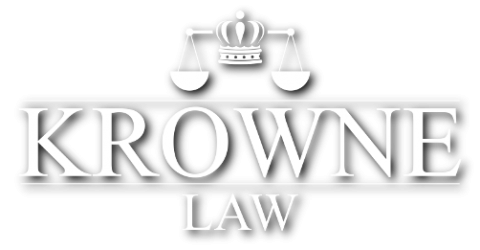A routine House Financial Services Committee hearing held on May 16th, 2018, turned eventful when a number of U.S. Congressional representatives sprung “initial coin offering” (ICO-related) questions on SEC officials — most of them from a more positive and supportive perspective than the SEC’s Chairman Jay Clayton has evinced in his comments directed at the ICO sector for most of the past year.
At the hearing, Ms. Avakian and Mr. Peikin, co-directors of the SEC’s Division of Enforcement, testified for the SEC.
Notable statements and exchanges included (emphasis added):
- Rep. Sherman (28:21): “I hope you shut it all down” (in reference specifically to ICOs; Sherman goes on to contrast the supposedly-lax SEC treatment of ICOs with a perceived harshness faced by conventional filers merely “misstating a footnote”.)
- Rep. Maloney (42:30): ” … there [has] been a strong debate about whether a token that is offered as an ICO can be a security when it is first issued to investors and then later evolved into something that is not a security; some people think that once it’s a security it’s always a security and the others think that the token status as a security can change over time. As far as I know this is not a decision that’s been decided by the SEC or the court, so I’d like to ask both of you do you believe it’s possible for a token to start as a security but then evolve to something that is not a security?”
Ms. Avakian: “I think it’s always going to be a facts and circumstances test as to whether something meets the definition of a security, and if the substance of something changes over time that analysis is going to have to continue to happen — but we really do look at the substance of the transaction, not the name of it, not what it’s called, and look at, you know, does it fit the test for a security…”
Rep. Maloney: “… have you seen any situations where [a coin going from a security to ‘utility’ status] has actually happened?”
Mr. Peikin: “I mean we have dozens of investigations that are ongoing and one of the subjects of many of these investigations is evaluating whether or not a particular instrument is or isn’t a security. I don’t think I can speak to… the outcome of those because some of that work is ongoing. A lot of what we’ve seen though in these ICOs obviously looks and… meets the definition of securities.” - Rep. Maloney (44:14): “… chairman [Clayton] has stated, and I quote, ‘I believe every ICO I’ve seen is a security’ — do you agree with that statement?”
Mr. Peikin: “I can’t speak to whether he’s seen the broad… gamut of instruments that our division is is investigating, so I certainly don’t dispute that what he’s seen he he believes is a security; the question… is whether some of the things that we’re looking at now, do they actually meet that definition, and I think… some more needs to be written on that.” - Rep. Emmer (01:10:10): “… as I’ve listened today, clearly I must have a different point of view when it comes to some of my colleagues on cryptocurrencies, and I will say that you just testified that these initial coin offerings present real risks to investors — but let’s not forget they also present real opportunities and we’re talking about a technology blockchain technology that has an amazing potential … “
- Rep. Emmer (01:10:51): “… secretary Clayton has said ‘every initial coin offering is a security’ — that’s not what I heard you say; you’re reviewing these and you’re developing what your view is of the different types of cryptocurrency… problem is, a lot of people up here with white hair without hair or people that have been around for a while don’t even understand what they’re talking about and we worry that too much government could actually kill this thing before it can grow into something that’s very good for our economy…”
- Rep. Emmer (01:12:46): ” … how does the SEC distinguish between an ICO and the sale of a token for use on a blockchain platform?”
Ms. Avakian: “That’s always going to be a real facts and circumstances question, and again, we’re gonna take a step back and look at exactly what the substance of that particular transaction or token is not the name of it…”
Rep. Emmer: “Is that [determination] evolving , because it could be a security, it could be a commodity, it could be a currency — there have to be some delineated lines so that people understand where they’re at and… who has jurisdiction over them, because we want to make sure that they’re continuing to explore the opportunity, and not just going out of business.”
Ms. Avakian: “Yeah, I think that’s right — and we’ve spoken a lot publicly about it, certainly the Chairman’s spoken a lot publicly about it, you know to the extent something is a pure currency, pure medium of exchange, that’s not a security. I think we’re relying on the experts in the marketplace — the gatekeepers, the lawyers, others like that — to really take a step back and take a true look at what is the underlying substance of a transaction, and that’s really going to be I think what guides someone. But we are… open in terms of having folks come to us and help work through that analysis.” - Rep. Davidson (01:19:00): “What do you make of these folks that are clearly cryptocurrency today, yet if they had raised capital, might be seen as security at the time — how do you resolve that?”
Mr. Peikin: “… we’re obviously… encountering [a] kind of new area with new products and changing technology, and some of these issues are being worked out in in the courts… as we speak… We’ve been focused on the tokens and crypto assets that fit the definition of a security, and the CFTC has been focused… on currencies and mediums of exchange, but you know I’m not sure I’m an expert to say… where that exact line is drawn, and I think some of this is going to be worked out… over time.”
And, the coup de grâce:
- Rep. Davidson (01:20:02): “… Our office is working on an initial coin offering bill that would provide certainty about how a security is… fundamentally, is the Howey test still relevant, what’s the role of SAFTs, is a white paper paper gonna cut it, or do you to use SEC forms that already exist — how do you advise proceeding forward with your office? …”
There is more discussion on ICOs, throughout — check out the full hearing record to get a complete picture.
We will not attempt to handicap the likelihood of this legislation coming to pass, but the comments do speak revealing to the presence of genuine advocates of ICOs and the new blockchain token asset economy in Congress. As such, we find the exchange that transpired distinctly encouraging.
(No official transcript of the hearing has been released; however, video of the full session can be accessed here, and KrowneLaw has provided an approximate, marked-up automatic transcript of the entire hearing, below.)
TRANSCRIPT GUIDE AND ADVISORY:
- The transcript was produced by a text-to-speech process performed automatically by a third party service outside of our control.
- KrowneLaw does not vouch for its accuracy; indeed, we guarantee it is inaccurate.
- As such, each snippet of translated text is linked directly to the point in the video at which it occurs (popup in separate window/tab). Please use this functionality to confirm exactly what was said in each case.
- The hearing covers a wide variety of topics; thus, ICO-related terms have been highlighted to assist in quick location of the relevant passages (this highlighting is by no means exhaustive, however).
- The breaks in the text coincide roughly with changes in topic/changes in Congressperson leading the questioning. They do not correspond to changes in speaker; thus, each block usually represents multiple speakers, including those on “opposing sides.” You must listen to each particular segment in the video to determine who is speaking and to get the full context (and therefore, meaning).
Scroll box with transcript follows:

